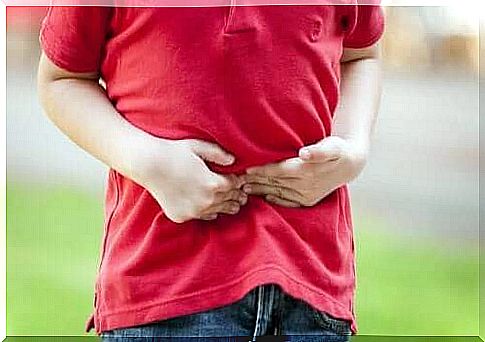Childhood Crohn’s Disease And Proper Diet

Crohn’s disease is an inflammatory bowel disease that causes painful and embarrassing symptoms. The primary treatment for the disease is medication, but in addition, the patient should follow a special diet that can help keep the disease in balance.
What is Crohn’s disease and what are its symptoms?
Crohn’s disease is a chronic inflammatory bowel disease. While its true origins remain a mystery, it has several distinctive features. The disease is more common among young adults, but can also occur in children.
Crohn’s disease is characterized by inflammation of the lining of a specific area of the intestine. The disease can damage this area and the onset of the disease is very difficult to predict. It manifests itself variably, sometimes bothering for long periods of time and sometimes for shorter periods of time. During these periods, disease activity stabilizes.
Crohn’s disease causes symptoms and complications that affect a patient’s quality of life, especially when the symptoms are very severe. In children, the symptoms caused by the disease mainly affect the intestines, such as the following:

- Abdominal pain.
- Active bowel function, chronic diarrhea.
- Anal lesions such as cracks, fistulas and abscesses.
- Fatigue.
- Lack of appetite and weight loss, which often occurs when symptoms are at their strongest.
Child Crohn’s disease and appropriate diet
Epidemiological studies have shown that some foods have protective properties. On the other hand, eating certain foods increases the incidence of Crohn’s disease.
For example, studies have shown that breast milk has protective properties against Crohn’s disease. For more information, read the English Alimentary Pharmacology & Therapeutics article.
The protective effect of breast milk may be due to its immunoglobulin and antibody benefits. The mother’s body is able to produce these substances and pass them on to her baby in her breast milk.
In addition, breast milk contains oligosaccharides that are favorable for the growth of a bacterial strain useful for the intestine.
Dietary recommendations for Crohn’s disease vary somewhat. What a patient should or should not eat depends on whether the stage of the disease is active and the symptoms are severe or not.
Nutritional instructions for the asymptomatic phase
Foods that a child should avoid
- Foods that cause accumulation without air. These include, for example, cabbage and other green vegetables, as well as cauliflower, whole grain products. carbonated beverages and legumes in shell.
- Cold cuts.
- Butter, milk and cheese.
- Sorbitol-containing foods such as candies, jars and light drinks.
Foods that a child should eat
- Blue fish rich in omega-3 fatty acids. Omega-3 has anti-inflammatory properties, so it has protective effects against Crohn’s disease.
- White fish, red meat and lean pork.
- Avocado and olive oil, both rich in vitamin E. This nutrient helps keep the digestive mucous membranes moisturized.
- Papaya, mango, carrot and pumpkin as they contain beta-carotene.
- Probiotic foods such as yogurt and kefir if they are only suitable for a child’s stomach.
Nutritional instructions for the severely symptomatic phase
When a child is experiencing severe symptoms, it is important to adjust his or her diet to suit, depending on how uncomfortable the child is feeling. When a child has severe symptoms, the food should be high in calories, low in fat and high in protein. In addition, the food should be high in fiber, anti-inflammatory, moisturizing and easily digestible.
- Avoid giving your child insoluble fiber found in whole grains, fruit and bean husks.
- Avoid giving your child foods high in animal-derived and saturated fats, such as butter, cream, red meat, cold cuts, pastries and cheese.
- Give your child gluten-free and lactose-free food, especially if your child develops diarrhea.
- Give your child food that contains small amounts of soluble fiber, such as quince jam, boiled or grilled apples and pears, and boiled carrots.
- Hydrate the baby with water, vegetable broth and brine.
Nutritional complications
A child with Chron’s disease may lose weight or may experience growth-related delay. A child may also develop some nutritional deficiencies. As a result, a child may experience anemia and low bone mineral density.
If your child weighs less than usual, consider the following:
- Instead of the child drinking only milk, offer the child smoothies containing fruit and grains.
- In addition to fruit, give yogurt and nuts if your child’s stomach digests them.
- You can add plenty of oils to your child’s foods.
- Provide the child with pasty food, as the stomach often digests one better than solid food.
- Serve with meat and fish with homemade sauce, but make sure it does not contain milk or cream.
Crohn’s disease is a complex disease, as it manifests itself very individually for each child, but also between the stages it contains. That is why it is important to always seek the advice of an expert in the field.









